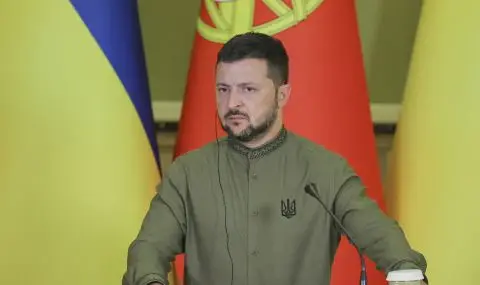There is evidence that Russia has begun to use a significant number of North Korean soldiers in attacks, Ukrainian President Volodymyr Zelensky said in his evening address, quoted by the UNIAN agency, BTA reports.
According to him, the Russians include them in combined units and use them in operations so far only in the regions of the Kursk region, but there is already information that the North Koreans will begin to include them in other sections of the front.
"The losses among this category are already noticeable", Zelensky said. "In practice, Moscow has drawn another country into this war and drawn it in as much as possible. And if this is not an escalation, what is the escalation that many are talking about? Putin is the one who is taking steps to expand and prolong this war. He is the one who is pushing the world away," he added.
Ukrainian troops invaded the Kursk region in August and still control several villages there, as part of Kiev's attempt to ease pressure on Ukrainian forces in eastern Ukraine, where Russia is advancing, Reuters notes.
Zelensky said the participation of North Korean troops in operations in the Kursk region, which borders Ukraine, represented a new escalation in the war that began nearly 34 months ago.
Ukraine will continue to defend itself, including against North Korean troops, the president said. He made a new appeal to Ukraine's Western allies to increase their support for Kiev, and added that he would discuss the issue with his European partners next week.
Zelensky plans to participate in a meeting with the leaders of Britain, France, Germany, Italy, Poland, NATO and the EU on December 18 in Brussels.
